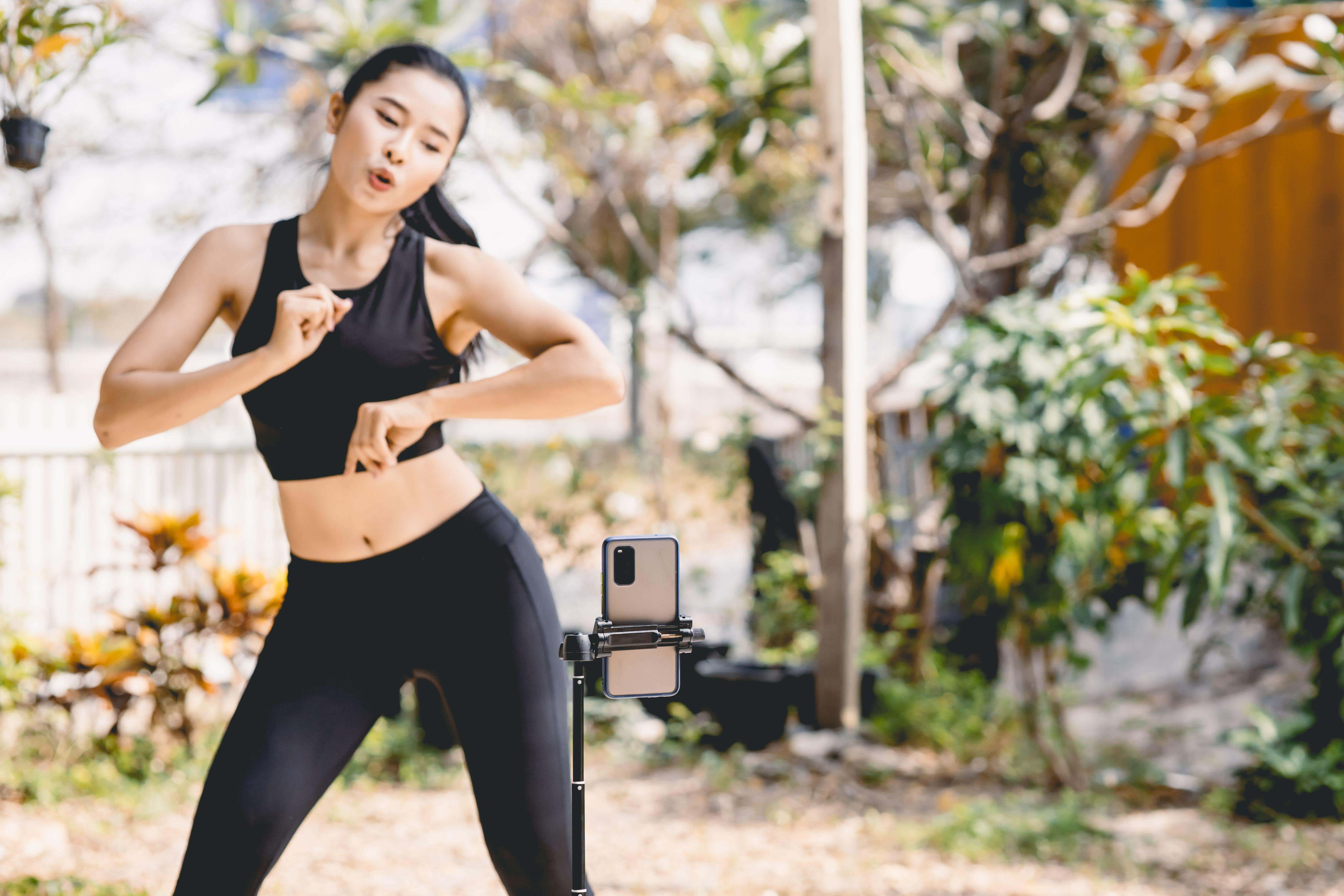Are we ditching our gym memberships to get fitness advice from TikTok?
The rise in fitness influencers is changing how we exercise. Rikki Loftus reports.

With the rise of fitness influencers being followed on social media for their tips and advice, are more and more people ditching their gym memberships to work-out at home?
Back in lockdown days, we had little choice but to follow online Pilates videos and Joe Wicks YouTube workouts. But now gyms are open again, it seems many people are still opting to go down the home workouts route.
According to a recent report by PureGym, some 16% of people in the UK currently have a gym membership, and a quarter of the population choose to only workout at home, with reasons for this including gym memberships being too expensive, not having enough time, and feeling intimidated by the gym.
More than half (54%) of people say they use YouTube for fitness advice, 40% use Facebook, and 37% use Instagram, the report suggests. For Gen Z respondents, TikTok is the preferred platform, with 71% of those aged 16-24 saying they use the video-sharing platform for fitness and exercise inspiration.
For industry insiders, this trend comes as no surprise.
“What we’re seeing is this shift to where online workouts are becoming far more accessible, and this means more people can access good quality information and education about how to move their bodies through social media, which is a huge positive,” says personal trainer and fitness influencer, Alice Liveing.
The author, podcaster and founder of the Give Me Strength app, who has over 680k Instagram followers, believes anything that encourages people to be active is a good thing.
“As a nation, research shows that we aren’t moving enough, which isn’t good for our physical or mental health, so an increase in online workouts means an increase in people gaining access to ways in which they can move their bodies, which should be encouraged,” adds Liveing, 30, who is also a brand ambassador for healthy recipe box company, Green Chef.
“I also think we now just know so much more about the benefits of exercise, which, through the power of social media, has meant more people are now recognising its importance, not just for their physical health but for their mental health too.”
The cost-of-living crisis may also be a big factor in the change to how we exercise, with 54% of people without a gym membership saying that the costs are too expensive for them.
But, turning to social media for your fitness advice can sometimes come with risks, Liveing warns, as there is not always a way to check someone’s credentials when they are offering online training.
“Often, it can be that good quality information from responsible and credible trainers is drowned out by those who look most aesthetically ‘fit’, regardless of their experience of training people or having qualifications in order to give the advice they’re giving,” she says.
Fitness influencer and qualified personal trainer Lauren Roberts agrees – she shares her workout tips with nearly 10,000 followers on her @liftwith.lauren TikTok page.
“There’s two sides of it, because there’s a lot of misinformation, which is kind of where I started out,” Roberts, 24, explains. “I made my YouTube to basically debunk things that I was finding people on TikTok or Instagram were saying, because I feel like those are the videos that people buy into.
“It’s important to know who you’re getting information from, because people might be spreading misinformation for the sake of getting views.”
Roberts started her page during the pandemic, and hasn’t looked back since posting her first viral video. She says the comments she gets from viewers speak volumes in terms of the rise of online workouts being favoured over the gym – and even Roberts herself admits to “constantly learning” from fitness content on social media.
“Now, you can pull your phone out and you can find a million videos on how to use the machine that you’re standing in front of, or videos on TikTok explaining how to use weights. I definitely think it’s changed in recent years,” she says.
While Liveing believes the gym will continue to play an important role in fitness, she now takes a ‘hybrid’ approach to her workouts, where she does some training at home and some from the gym, depending on her schedule.
With one in five people (21%) saying they find the gym intimidating, according to PureGym’s report, Liveing also hopes the rise in online fitness will help give people confidence to step foot in a gym. After all, not everybody has a full weights set-up at home, even if they are getting their workout advice from influencers.
“Firstly, before you even set foot in a gym, please just know that you deserve your spot in that gym just as much as anyone else. It doesn’t matter whether you’re a total beginner or a fully trained athlete, you deserve to be there, and to use every piece of equipment and space on that floor that you need,” she says.
“Going with a friend is a big ask, but in the initial stages of your gym journey, it can be so helpful having someone else there with you to minimise the gym anxiety.”
Bookmark popover
Removed from bookmarks